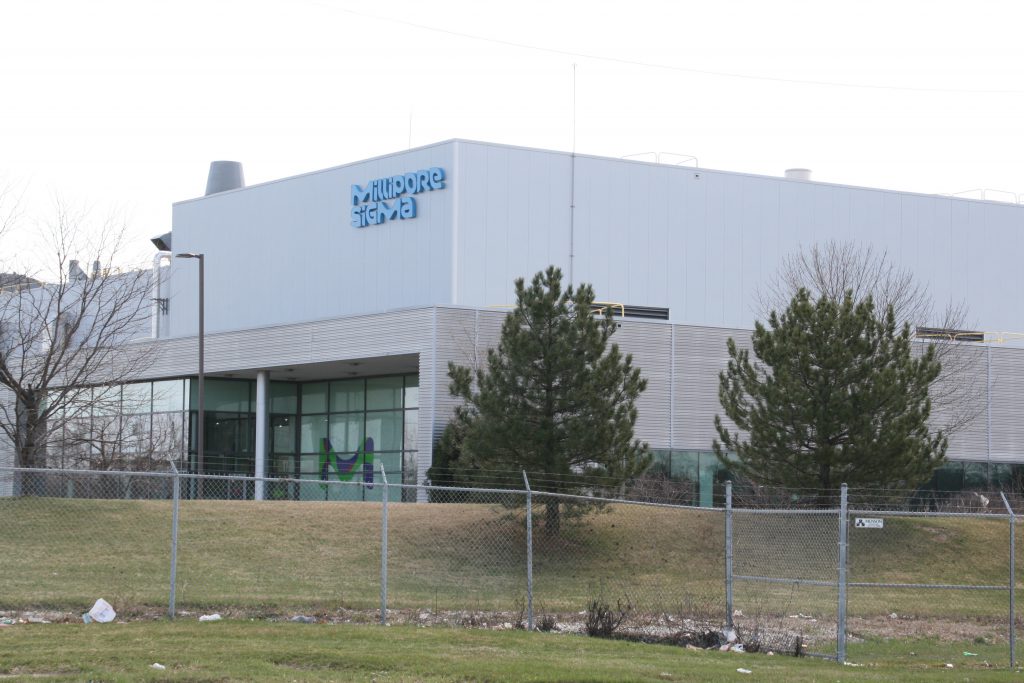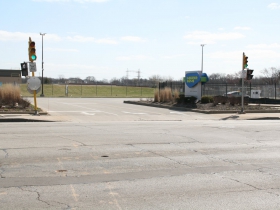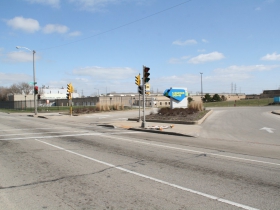City Closing Three TIF Districts
But two were busts, yielding no property tax relief.
The City of Milwaukee is closing three tax incremental financing (TIF) districts used to spur real estate development, though only one has performed as expected.
The three districts to be closed include a 66-acre N. Teutonia Ave. district (#52) used to support the relocation of Sigma-Aldrich Corp (today’s MilliporeSigma). The district was created as a result of the Marquette Interchange reconstruction, which triggered the need for the company to move out of the interchange’s expanded footprint. The new factory complex opened in 2005.
The district today has generated an incremental assessed value of approximately $17 million, which will now result in the underlying property taxing entities receiving approximately $500,000 annually (of which the city will receive approximately one third).
The other two districts are an example of what can go wrong.
District #58, 20th and Walnut, was created in 2005. It was used to fund approximately $2.5 million in site preparation work for the Walnut Circle subdivision, which involved demolishing a vacant Sentry grocery store. The money was borrowed upfront, placing the risk on the city. Then the housing market went sideways, eliminating any increment.
In fact, until 2020, the properties in the district were worth less than when the district was created. The city had to use an overperforming Historic Third Ward district (used to fund the riverwalk) in 2013 to bail out the district, and then the Sigma-Aldrich district was used as a donor in 2021 to close out the remaining debt. The district ended 2020 with an incremental value of $76,000.
A similar situation played out with the other district being closed (#65), 20th and Brown. It was created in 2006 to fund $3.58 million in site preparation work for the Josey Heights subdivision, but the housing market bust effectively halted new construction and devastated the values of the existing development in the district. The district ended 2020 with an incremental value of $1.02 million after spending more than a decade underwater. It too received donations in 2013 and 2021 from the Third Ward and Sigma-Aldrich districts to pay off its debt.
The city could have chosen to leave the liabilities unpaid from the two housing TIF districts, as they had not yet reached the state-imposed maximum legal life of 30 years. But the Sigma-Aldrich TIF, with no obligations or debt remaining, would have to be closed under state law and the city would risk needing to pay off the underperforming districts from its general fund.
The Common Council voted unanimously to close all three districts on Tuesday.
Under state law, districts have a maximum legal life of 27 years with a three-year extension available for underperforming districts. Revenue from overperforming districts can donated to underperforming districts at any point, and, in their final year, be used for road paving projects within a half-mile of their borders and affordable housing efforts anywhere in the city. Overperforming districts (those scheduled to retire their obligations before their maximum legal life) can also be amended for public infrastructure projects, which is what the city recently did with four districts to fund street infrastructure improvements. The Sigma-Aldrich TIF was tapped this year for $450,000 to fund affordable housing.
Closure of a TIF district, all else being held equal, increases the amount of taxed property and thereby reduces property tax rates, but holding a district open for future use does not withhold revenue from property taxing entities under the state’s property tax cap system because a portion of the otherwise sequestered value can be added to the property tax levy.
MilliporeSigma Photos
Eyes on Milwaukee
-
Church, Cupid Partner On Affordable Housing
 Dec 4th, 2023 by Jeramey Jannene
Dec 4th, 2023 by Jeramey Jannene
-
Downtown Building Sells For Nearly Twice Its Assessed Value
 Nov 12th, 2023 by Jeramey Jannene
Nov 12th, 2023 by Jeramey Jannene
-
Immigration Office Moving To 310W Building
 Oct 25th, 2023 by Jeramey Jannene
Oct 25th, 2023 by Jeramey Jannene


























These three TIP districts appear to have been well thought out but circumstances lead to only one being successful. This is in contrast to the wealthy residential and commercial developers who are continually demand a TIF or direct tax payer financing of “can’t miss”projects that often go bankrupt. There needs to be a law that builds in a process that is a check on local unit of government handing over scarce tax dollars to these parties. For large projects, have a law that demand a referendum from the local community which forces the developers to sell the merits of the project.
@Mingus – I can’t think of any “can’t miss” projects that have gone bankrupt (in the city proper).
There are two safeguard provisions attached to the creation of each TIF district. One, a third-party consultant confirms the estimates used on the revenue projections. Two, the Comptroller provides a report on the viability of the project.
Are TIFs also required to pass the “but for” test? Even if a poorly defined standard.